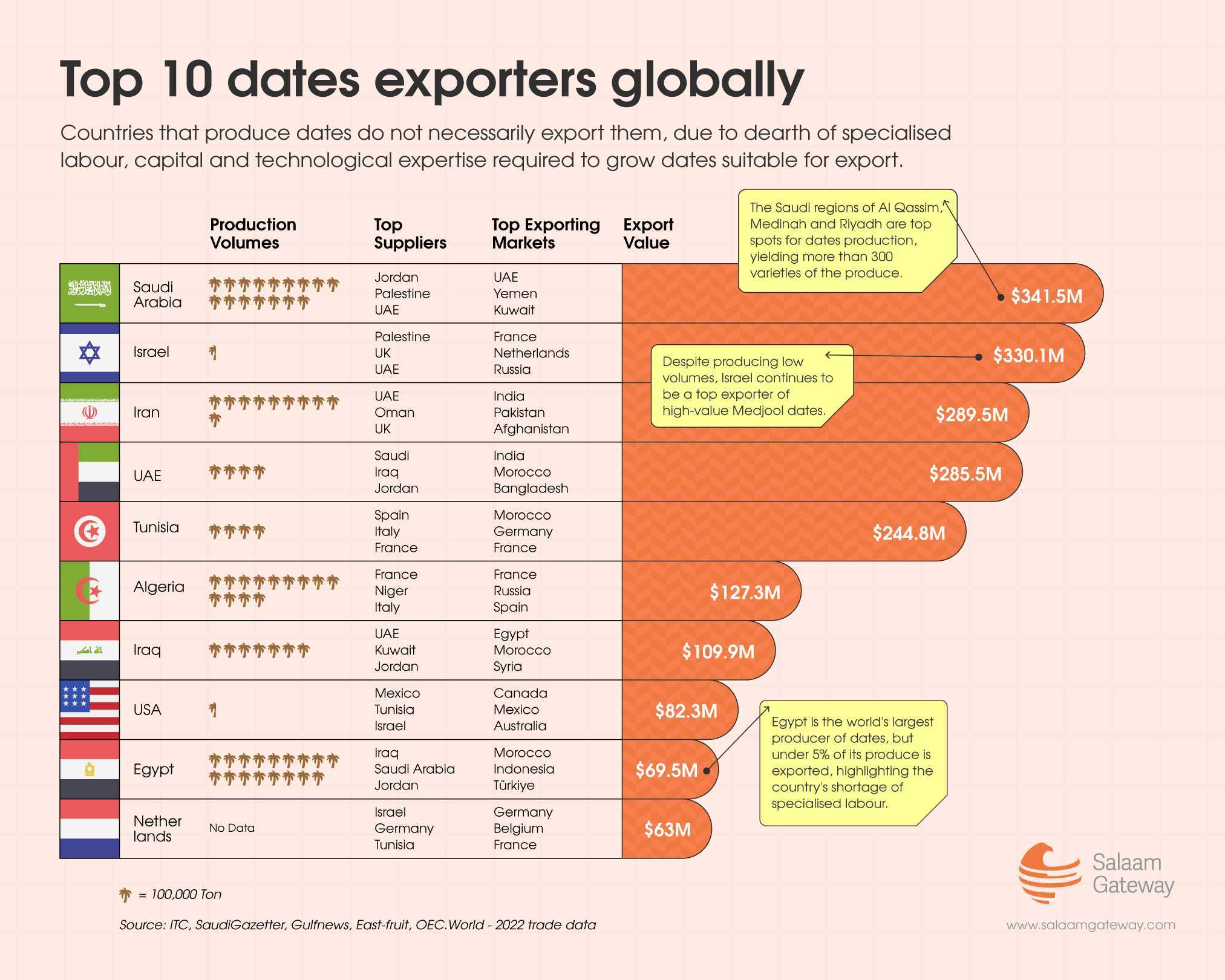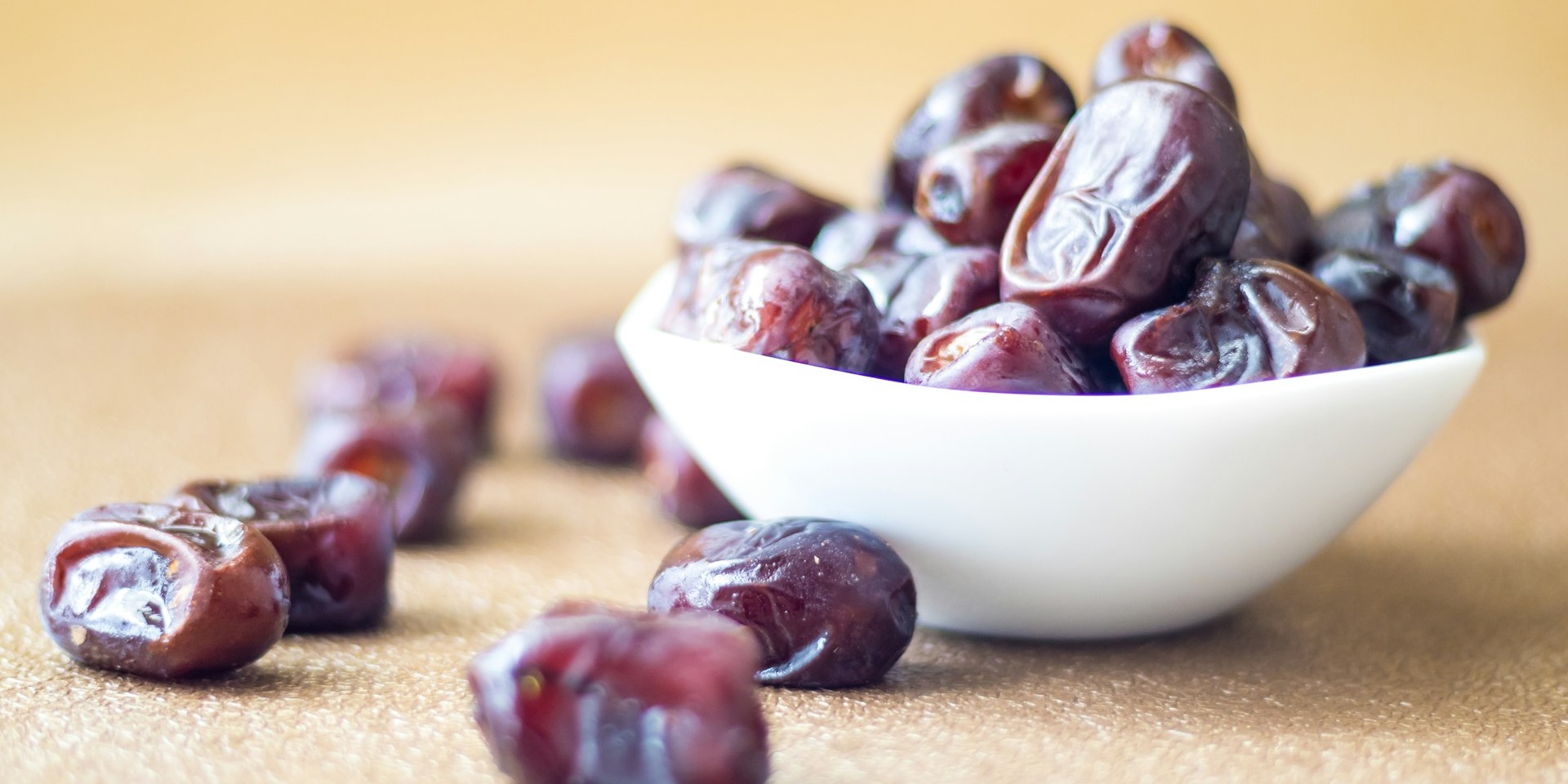Muslims across the world traditionally break their fasts with dates during Ramadan, making it a staple food item across households in the holy month.
This has historically prompted an uprise in the sales of dates and date products across Muslim-majority countries every year, ahead of the holy month.
In this context, this year is no different.
However, in the wake of the Gaza conflict, the current year has proven to be atypical as it has carried calls to conduct a cautious screening ahead of purchasing dates, primarily to gauge their origin.
In short, a concerted attempt to spurn Israeli dates.
The Gaza crisis – now ending its sixth month, has set a product disengagement campaign in motion, whereas Muslims around the world have shunned products and brands, companies even, believed to be supporting the Israeli offensive.
The campaign has had tangible effects, with several Western companies and brands reporting diminishing sales figures and forecasts, debilitating customer engagement and job losses.
It is no surprise that the global movement drew in dates ahead of the holy month.
Calls to avoid the purchase of Israeli dates has come from multiple quarters and levels.
Indonesia’s religious body appealed to Muslims across the country to refrain from purchasing dates produced in Israel, citing them ‘haram’ or impermissible.
Miftahul Huda, secretary of the MUI Fatwa Commission told Salaam Gateway that one form of resistance is to reject Israeli products and products that support Israeli aggression against Palestine.
Meanwhile, Malaysia’s ministry of domestic trade and cost of living announced in March that it would continue to monitor the sales of dates suspected to originate from Israel, while the country’s customs department seized 73 packets of dates believed to be Israeli.
Norhariti Jalil, partner at DinarStandard, said that import of dates into Malaysia can come from many GCC sources, too.
While Israel itself may not be a top dates producer, it is one of its top exporters, with $330 million in export value, second only to Saudi Arabia. It is world’s leading supplier of the Medjool dates, with the Israel Date Growers' Cooperative – Hadiklaim – exporting 20,000 tons of dates and date products annually.
Israel exported fresh or dried dates worth $6.35 billion to the US during the first five months of the year 2023-24, accounting for around 21% of $29.37 billion imported by the US, according to Economic Research Service data provided by the US Department of Agriculture. Mexico led the pack with exports worth $10.1 billion.

Meanwhile, the UK is the second-biggest importer of Israeli dates in Europe, having imported more than 3,000 tonnes – worth around 7.5 million pounds – in 2020, non-profit organization Friends of Al Aqsa said.
It launched a campaign to spurn Israeli dates, urging consumers to avoid purchasing those labelled from Israel, the West Bank, and the Jordan Valley, or if the country of origin on the label is absent.
“There are two peaks of date consumption in Europe. One is during the month of Ramadan and the other is during New Year’s Eve and Christmas,” the advocacy group said.
Synchronous goals
There are simultaneous calls to encourage dates and other products grown and traded by Palestinian producers.
Date palm production, despite Israel-imposed restrictions, has increased in recent years, and is a key mean of supporting livelihood for Palestinian farmers.
According to a FAO (Food and Agriculture Organization of the United Nations) report published last year, dates have been cultivated in Palestine for thousands of years but face severe problems with the Israeli occupation and their control of water resources.
“Date palm production showed some expansion during the last 15 years, and more recently in the West Bank and Gaza Strip. Production in 2015 reached 5,000mt. Date farming is practiced by about 1,430 date palm producers (60 are women) in Deir Al Balah and Khan Younis, the main date areas in Gaza Strip,” the Value chain study - Date palm in the Arab region report added.
There are several companies supporting the Palestine cause outside of Palestine. UK-based Zaytoun sells a range of products sourced from multiple communities in Palestine, available across shops and retailers in the country.
"We offer premium quality products that are ethically sourced, sustainably grown and sourced from farmers in Palestine. In doing so, we support Palestinian farming communities facing the challenges of illegal Israeli occupation and settlement through trade," the company said, on its website.
Additional reporting from Yosi Winosa in Jakarta, Indonesia

